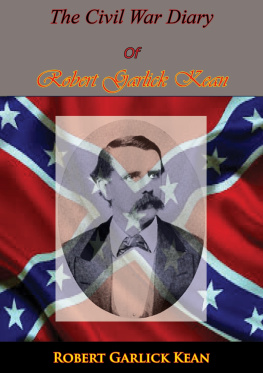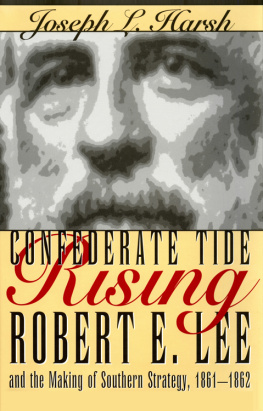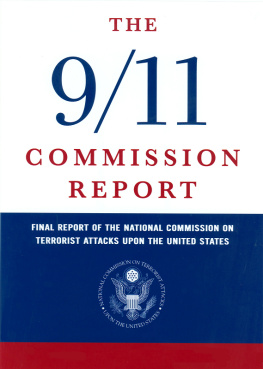

This edition is published by PICKLE PARTNERS PUBLISHINGwww.pp-publishing.com
To join our mailing list for new titles or for issues with our books picklepublishing@gmail.com
Or on Facebook
Text originally published in 1957 under the same title.
Pickle Partners Publishing 2016, all rights reserved. No part of this publication may be reproduced, stored in a retrieval system or transmitted by any means, electrical, mechanical or otherwise without the written permission of the copyright holder.
Publishers Note
Although in most cases we have retained the Authors original spelling and grammar to authentically reproduce the work of the Author and the original intent of such material, some additional notes and clarifications have been added for the modern readers benefit.
We have also made every effort to include all maps and illustrations of the original edition the limitations of formatting do not allow of including larger maps, we will upload as many of these maps as possible.
INSIDE THE CONFEDERATE GOVERNMENT: THE DIARY OF ROBERT GARLICK HILL KEAN
BY
ROBERT GARLICK HILL KEAN,
Head of the Bureau of War
Edited By Edward Younger

TABLE OF CONTENTS
Contents
DEDICATION
To Dr. and Mrs. Robert H. Kean
ACKNOWLEDGMENTS
With their time , energy, and wisdom several of my friends have been of great help to me in preparing this book for publication. To acknowledge their services here is to give only an inadequate expression of my sincere thanks and deep appreciation.
Allan Nevins of Columbia University and Harry Clemons of the University of Virginia gave me encouragement and wise counsel. Cary Johnson of the University of Virginia History Department and Frank Berkeley and John Wyllie of the University of Virginia Library read and criticized the Introduction. Richard Harwell and Robert Scribner of the Virginia State Library and Gleason Bean of the Washington and Lee University History Department read and criticized the entire manuscript and helped me identify several of the personalities in the Diary. Mrs. Lawrence Greaver of the University of Virginia Library saved me endless time and energy by typing the manuscript from the original Diary.
Archer Jones and Bill Runge, University of Virginia graduate students in history, gave me valuable research assistance. Jean Hackle, another University of Virginia graduate student in history, produced an excellent study of the life of the diarist and gave me invaluable editorial assistance. To her more than to any other person I am indebted. Ruth Ritchie went far beyond her duties as secretary of the University of Virginia Institute for Social Science Research by preparing the index and calling my attention to many potential errors.
Dr. and Mrs. Robert H. Kean, owners of the Diary, have been as free of their time and energy in helping me prepare the manuscript as they have been in giving me unlimited use of their Kean materials. At the Oxford University Press, Lee E. Grove, Margaret J. Talbott, and Carroll G. Bowen, have been uniformly co-operative and helpful.
The University of Virginia Institute for Social Science Research, with a summer grant, and the Richmond Area University Center, with a grant for research assistance, have given me the uninterrupted time and competent aid necessary to finish the project.
Finally, all the while, my wife and daughter, Barbara and Ellen Younger, have been patient and understanding.
EDWARD YOUNGER
4 Dawsons Row
University of Virginia
March, 1957
INTRODUCTIONTHE DIARIST AND THE DIARY
Robert Garlick Hill Kean, Head of the Confederate Bureau of War, trudged wearily to the War Office that fateful Sunday morning of April 2, 1865. Disaster was written on the horizon and fatigue on the faces of the men at the War Office. Postmaster General Reagan and several others were merely sitting around, hopelessly dreading to start work, awaiting news that could be only bad news. At nine-thirty a messenger hurried in from the telegraph office. The message he carried could not have been a surprise to R. G. H. Kean. General Lees thin lines at last had been broken. Preparations must commence at once to evacuate Richmond.
Several times recently Kean and his immediate superior, John A. Campbell, the assistant secretary of war, had discussed this eventuality. From inside the Confederate government they had early perceived the gradual decay of the very foundations of their new nation, as the enemys power ever mounted. And, while perceiving defeat, they had been unable to perceive much hope for the South and its weary people. An unfathomable future promised, for certain, only humiliation, despair, and gloom.
This was no time for speculation. Immediate tasks lay at hand. Dutiful and with keen appreciation for historical materials, Kean started packing valuable papers of the War Office. The Office became a beehive of activity. At eleven, a second telegram arrived from General Lee; Richmond would have to be evacuated that night. Kean worked hard and at three that afternoon went to his house where his wife was making frantic preparations to leave for Albemarle County on a James River and Kanawha Canal boat. The canal was rapidly clogging up with boatloads of people seeking safety somewhere to the west. By six oclock Kean had his records packed and at the Danville Depot. With them he boarded the same train which at eleven carried away the President and the Cabinet. The next afternoon they arrived at Danville where hospitable citizens, relatively unhurt by the war, enthusiastically took them in.
The secretary of war, General John C. Breckinridge, did not accompany the fleeing government; nor did the assistant secretary, John A. Campbell. Kean himself had to open up the War Office. For a week, no news from Lee, and then the crushing report of his surrender at Appomattox. That night, Monday, April 10, the President and his Cabinet hastily departed for Charlotte, North Carolina. From the west Stonemans 6000 veteran raiders were closing in. From the east Shermans dreaded legions were relentlessly pushing back General Joseph E. Johnstons small Confederate force. The route to safety was fraught with danger.
In Danville confusion prevailed in the bureau offices where no clear orders from above had been given. With the Army of Northern Virginia gone, the rush from the town turned into a stampede. The next day Kean got his cases on a troop train and caught up with the Presidential party at Greensboro on Thursday night. General Breckinridge was there; so were Generals Johnston and Beauregard, two of the Presidents bitterest enemies. On Saturday the Presidential party slipped away as quietly as their ambulance, carriage, and wagon train would permit. Stonemans raiders were all around, and to the south ahead of the fleeing government, they were destroying railroad bridges and tracks.
Kean with his records followed in wagons on Sunday, not knowing that Davis had reluctantly and sorrowfully consented to let Johnston negotiate with Sherman. While camping at High Point four days later, Kean learned that Sherman had offered Johnston peace terms. The terms were extremely lenient and must have relieved Kean of much foreboding. When the Confederacy laid down her arms, the Southern states were to re-enter the Union with their state governments unimpaired and their constitutional rights recognized. The protection of Southern persons and property was guaranteed. But Keans spiraling hope must have crumpled when word fast followed that President Lincoln had been assassinated. Would Andrew Johnson and the Radicals approve Shermans terms? Would Southern leaders be held responsible for Lincolns death? Apprehensively, Kean moved on and caught up with the fleeing government at Charlotte.
Next page










